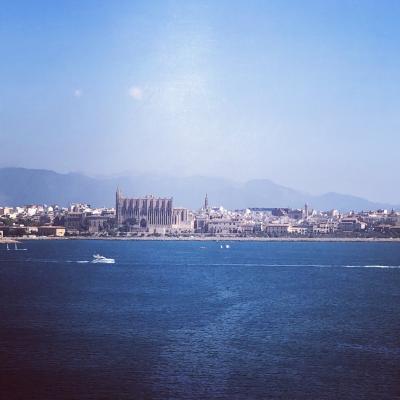How do the Mediterranean climate conditions in Mallorca affect the spread of giant reed along riverbanks?
Similar Topics
mediterranean climate mallorca
giant reed spread
riverbank invasion
seasonal water availability
wet winters
dry summers
rhizome dispersal
soil erosion impacts
Mallorca’s Mediterranean climate, characterized by mild, wet winters and hot, dry summers, significantly influences the spread of giant reed (Arundo donax) along its riverbanks. This invasive plant thrives in environments where water availability fluctuates seasonally, which is typical of Mallorca’s river systems. During the wetter months, increased river flow provides ample moisture, creating ideal conditions for the giant reed to establish and expand. The plant’s robust rhizome system benefits from this seasonal water supply, allowing it to grow rapidly in the spring when temperatures warm and soils are moist.
As summer approaches, the dry and often prolonged drought period typical of Mallorca’s climate impacts the riverbanks by reducing soil moisture and sometimes causing river flows to diminish or become intermittent. Despite these dry conditions, giant reed’s deep-rooted nature allows it to access groundwater, enabling it to survive and even outcompete native vegetation that cannot tolerate such drought stress. This resilience during dry spells helps giant reed maintain dominance along riverbanks, especially in areas where human disturbance or water regulation has altered natural flow regimes.
The climate also indirectly influences the plant's spread through soil erosion dynamics. Heavy winter rains can trigger soil movement along riverbanks, dispersing rhizome fragments downstream. These fragments often root and grow into new plants, facilitating the colonization of new areas. Combined with warmer temperatures that extend the growing season, this cycle ensures the giant reed remains a persistent and expanding presence. Consequently, Mallorca’s Mediterranean climate creates a favorable, though somewhat challenging, environment for giant reed, enabling it to dominate riparian zones and modify local ecosystems over time.
As summer approaches, the dry and often prolonged drought period typical of Mallorca’s climate impacts the riverbanks by reducing soil moisture and sometimes causing river flows to diminish or become intermittent. Despite these dry conditions, giant reed’s deep-rooted nature allows it to access groundwater, enabling it to survive and even outcompete native vegetation that cannot tolerate such drought stress. This resilience during dry spells helps giant reed maintain dominance along riverbanks, especially in areas where human disturbance or water regulation has altered natural flow regimes.
The climate also indirectly influences the plant's spread through soil erosion dynamics. Heavy winter rains can trigger soil movement along riverbanks, dispersing rhizome fragments downstream. These fragments often root and grow into new plants, facilitating the colonization of new areas. Combined with warmer temperatures that extend the growing season, this cycle ensures the giant reed remains a persistent and expanding presence. Consequently, Mallorca’s Mediterranean climate creates a favorable, though somewhat challenging, environment for giant reed, enabling it to dominate riparian zones and modify local ecosystems over time.
🧩 Related Questions
Related Question
What role do cisterns play in modern Mallorcan festivals or community events?
Related Question
What role do German and Italian play in Mallorca’s hospitality sector for international visitors?
Related Question
What are some family-friendly activities on Mallorca that go beyond the typical beach experience?
